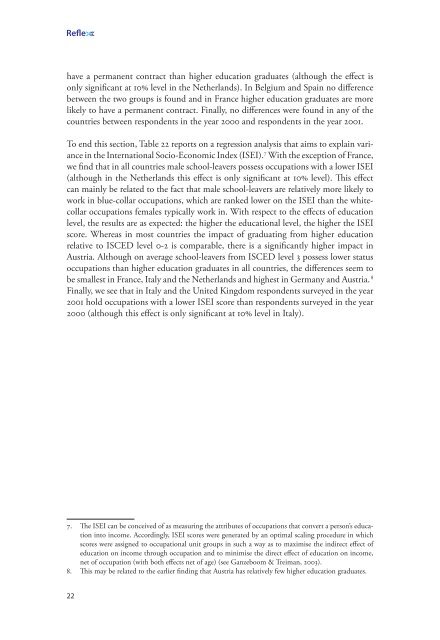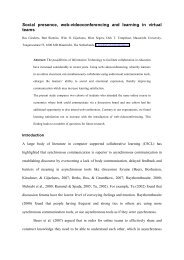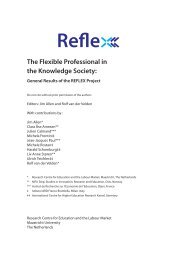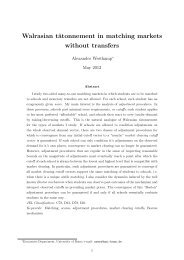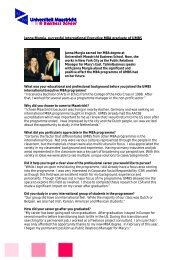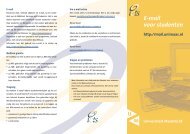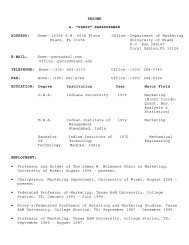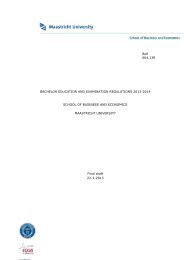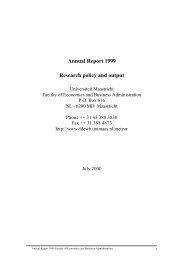Reflex Country study - School of Business and Economics ...
Reflex Country study - School of Business and Economics ...
Reflex Country study - School of Business and Economics ...
Create successful ePaper yourself
Turn your PDF publications into a flip-book with our unique Google optimized e-Paper software.
Ree<br />
have a permanent contract than higher education graduates (although the effect is<br />
only significant at 0% level in the Netherl<strong>and</strong>s). In Belgium <strong>and</strong> Spain no difference<br />
between the two groups is found <strong>and</strong> in France higher education graduates are more<br />
likely to have a permanent contract. Finally, no differences were found in any <strong>of</strong> the<br />
countries between respondents in the year 2000 <strong>and</strong> respondents in the year 200 .<br />
To end this section, Table 22 reports on a regression analysis that aims to explain variance<br />
in the International Socio-Economic Index (ISEI). 7 With the exception <strong>of</strong> France,<br />
we find that in all countries male school-leavers possess occupations with a lower ISEI<br />
(although in the Netherl<strong>and</strong>s this effect is only significant at 0% level). This effect<br />
can mainly be related to the fact that male school-leavers are relatively more likely to<br />
work in blue-collar occupations, which are ranked lower on the ISEI than the whitecollar<br />
occupations females typically work in. With respect to the effects <strong>of</strong> education<br />
level, the results are as expected: the higher the educational level, the higher the ISEI<br />
score. Whereas in most countries the impact <strong>of</strong> graduating from higher education<br />
relative to ISCED level 0-2 is comparable, there is a significantly higher impact in<br />
Austria. Although on average school-leavers from ISCED level 3 possess lower status<br />
occupations than higher education graduates in all countries, the differences seem to<br />
be smallest in France, Italy <strong>and</strong> the Netherl<strong>and</strong>s <strong>and</strong> highest in Germany <strong>and</strong> Austria. 8<br />
Finally, we see that in Italy <strong>and</strong> the United Kingdom respondents surveyed in the year<br />
200 hold occupations with a lower ISEI score than respondents surveyed in the year<br />
2000 (although this effect is only significant at 0% level in Italy).<br />
7. The ISEI can be conceived <strong>of</strong> as measuring the attributes <strong>of</strong> occupations that convert a person’s education<br />
into income. Accordingly, ISEI scores were generated by an optimal scaling procedure in which<br />
scores were assigned to occupational unit groups in such a way as to maximise the indirect effect <strong>of</strong><br />
education on income through occupation <strong>and</strong> to minimise the direct effect <strong>of</strong> education on income,<br />
net <strong>of</strong> occupation (with both effects net <strong>of</strong> age) (see Ganzeboom & Treiman, 2003).<br />
8. This may be related to the earlier finding that Austria has relatively few higher education graduates.


